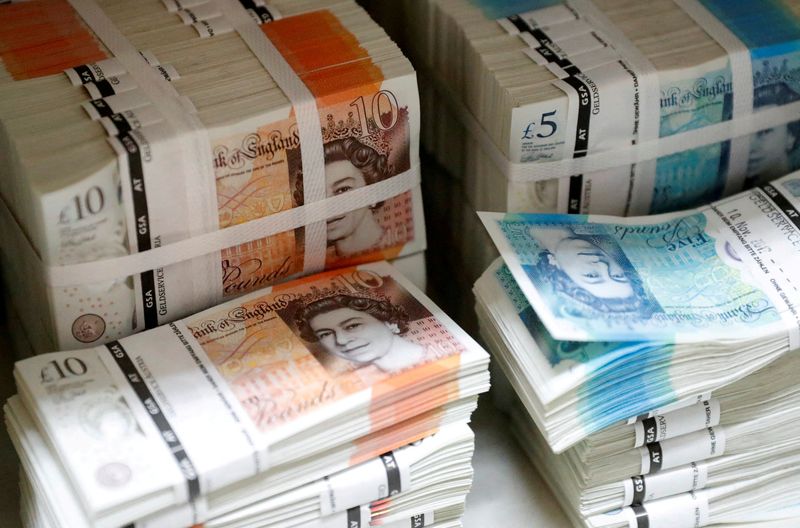By Samuel Indyk
LONDON (Reuters) -The British pound was on track for its biggest daily drop against the dollar in almost a month after a survey showed a slump in UK business activity in August, prompting a scaling back of expectations for where interest rates will peak.
The S&P Global/CIPS Purchasing Managers' Index (PMI) tumbled to 47.9 in August from 50.8 in July, according to a preliminary estimate, the lowest level since January 2021.
The manufacturing PMI dropped from 45.3 to 42.5, its lowest since May 2020, while the services sector index fell from 51.5 to 48.7, matching January's two-year low.
"Importantly the services and composite PMI are both now below 50 and in contractionary territory," said Kirstine Kundby-Nielsen, analyst at Danske Bank.
"It's a sign some of the past rate increases from the Bank of England are starting to feed through and that's reflected in the move in the pound today," Kundby-Nielsen added.
The pound was last down 0.8% against the dollar to $1.2632, its lowest level since Aug. 14, and its biggest daily drop against the greenback since July 27.
It slipped 0.4% against the euro, with the single currency buying 85.56 pence, having earlier reached its highest level against the euro in 12 months after a survey showed German business activity contracted at the fastest pace in more than three years in August.
The softer data has seen money market traders scale back bets on where Bank of England (BoE) rates will peak.
The central bank has raised rates 14 times since December 2021, taking them to their highest level since 2015 at 5.25%.
Markets had expected them to peak at 6%, but now see just two more 25 basis point rate rises to 5.75%.

Jordan Rochester, senior G10 FX strategist at Nomura, expects the pound to fall to $1.22 as more evidence of a slowdown builds and the BoE pauses rate hikes later this year.
"Yesterday it was the CBI that said the UK doesn't have an inflation problem ...today it's the PMIs," Rochester said, referencing data on Tuesday from the Confederation of British Industry (CBI) that showed manufacturers' output price expectations fell to their lowest since February 2021.